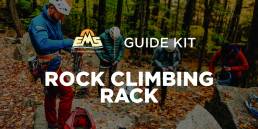Known for their large dimensions, spacious interiors, and luxurious features, car camping tents, sometimes also called family camping tents, are a key piece of gear. They are great for staying at a campground, a multi-day music festival, or under the stars in the backyard, and they’re downright comfortable when compared to their sleek, lightweight, and generally no-frills backpacking counterparts. Here are a few factors to consider when choosing a car camping tent, whether you’re looking for your first one or upgrading an old favorite.

Intended Use
The first step in choosing a car camping tent is determining how you intend to use it—are you strictly car camping or do you want something that will also work for the occasional backpacking trip? Car camping tents are best when comfort, rather than packability and minimal weight, is the priority. They are generally not designed to be carried more than a few feet (like from your trunk to the tent site) and are typically large, heavy, and feature more creature comforts than a backpacking tent.
If you want a tent that can crossover into backpacking, a big backpacking tent is likely better suited to your needs than a car camping tent, but there are plenty of tents that blend some of the spaciousness of a car camping tent into a package still slightly smaller than the typical car camping tent.

Size Matters
Bigger is better is a good rule of thumb when determining what size car camping tent you need. A four-person family camping tent will sleep four people, however, opinions will vary on how comfortably it does so. Buying a larger tent than you think you need ensures you have plenty of space to sleep, stretch out on a rainy day, or accommodate a last-minute addition to your trip or your four-legged friend. Since the intention of car camping isn’t to carry your tent on your back, there is little penalty to the extra weight and pack size of a huge tent.
Keep in mind that it’s much easier to make a six-person tent work for four people than a four-person tent work for six people: No one has ever complained about having too much tent space.

Set-Up
Some tents are easier to set up than others. Complex multi-pole designs and intuition-intensive pitching instructions will impress some engineers, but others may find them infuriating. Color-coded poles, clips, and grommets all go a long way to make pitching a tent easier.
If possible, try to set up a few tents to see what you find the most straightforward. Also, picture yourself setting that tent up after dark and at the end of a long trip to your destination. If all goes well, you’ve probably found a good match.

Weather Proofing
Unlike backpacking tents, car camping tents aren’t broken down between three- and four-season. That said, you’ll still want to consider the type of conditions you’ll camp in. For example, if you’re a fair-weather camper, look for tents with lots of windows and ventilation to keep air flowing through the tent. Keep in mind that the multitude of windows that let in fresh air are also good at letting out warm air, especially in the cooler months. A tent that you can batten down against inclement weather is a good choice if you’re not scared off by a rainy weekend.
Durability
Family tents are subjected to a lot of abuse. People are in and out of them all day and they are typically treated with less care than other types of tents, especially if you’re camping with kids and/or dogs. Look for a tent that uses high-quality materials and solid construction practices, like reinforced corners. Because car camping tents have a much more broad base of users than their backpacking brethren, there are a lot of options at your local EMS.
In general, a car camping tent from a trusted tent-maker will last a long time.

Five Features to Look for in a Family Camping Tent
Family camping tents are commonly feature-filled, and identifying which characteristics are most important to you can help you find a tent that’s just right.
Vestibule
A vestibule is an area outside of the main tent but protected by the rain fly. Think of the vestibule as kind of a mudroom or porch for your tent—it’s a place to keep your shoes, store extra gear, or a sleeping spot for a dog who’s gotten too wet, stinky, dirty, or a combination of the three to come inside. Tents come with vestibules of varying sizes and some even sell extensions that create huge spaces outside of your tent proper.
Doors
When it comes to car camping tents, the more doors the merrier. The pros of having lots of doors are that they make it easier to get in and out of the tent, keep you from crawling over your tentmates, and improve ventilation. The downside to multiple doors is that it makes it easier to drag dirt into the tent and increases the likelihood of leaving one accidentally open.
Headroom
The ability to stand up inside a car camping tent is a luxury, particularly if you’re planning to spend a lot of time in it. Most tentmakers will provide the “peak” height of their tents, however, that only tells half of the story. The shape of a tent will also contribute to how much vertical space it offers. For example, an A-shaped tent may allow you only to stand along its centerline, while a box-shaped design with vertical walls will enable you to stand freely anywhere inside.
Footprint
A footprint is a piece of fabric that exactly matches the shape of your tent and goes between the bottom of the tent and the ground. It offers some weather protection and also protects the bottom of your tent from the abrasive ground underneath it. Some tent manufacturers include a footprint, while others sell them separately. This is worth keeping in mind when comparing the price of tents, as a stand-alone footprint can cost upward of $50.
Storage
Many car camping tents come with an array of internal options to help keep you organized while sleeping under the stars, including gear lofts, clotheslines, and pockets. Think about your storage needs, the number and type of storage options provided by a tent, and your personality, then choose your tent accordingly.
The Pitch
The best car camping tents provide plenty of space, are convenient to pitch, meet your unique needs, and will stand up to numerous trips. A tent plays a significant role in the success of any camping trip—whether at a campground or deep in the backcountry—and affects everything from your comfort to your happiness, so choose wisely.

Tim Peck and Doug Martland
Tim and Doug met long ago at the Eastern Mountain Sports in Canton, Massachusetts. Bonding over a love of slick Quincy Quarry granite, White Mountain sufferfests, and scheming up adventures while folding tee-shirts, today Tim and Doug collaborate to write about their favorite outdoor activities and occasionally get nostalgic about tee-shirt tables.




